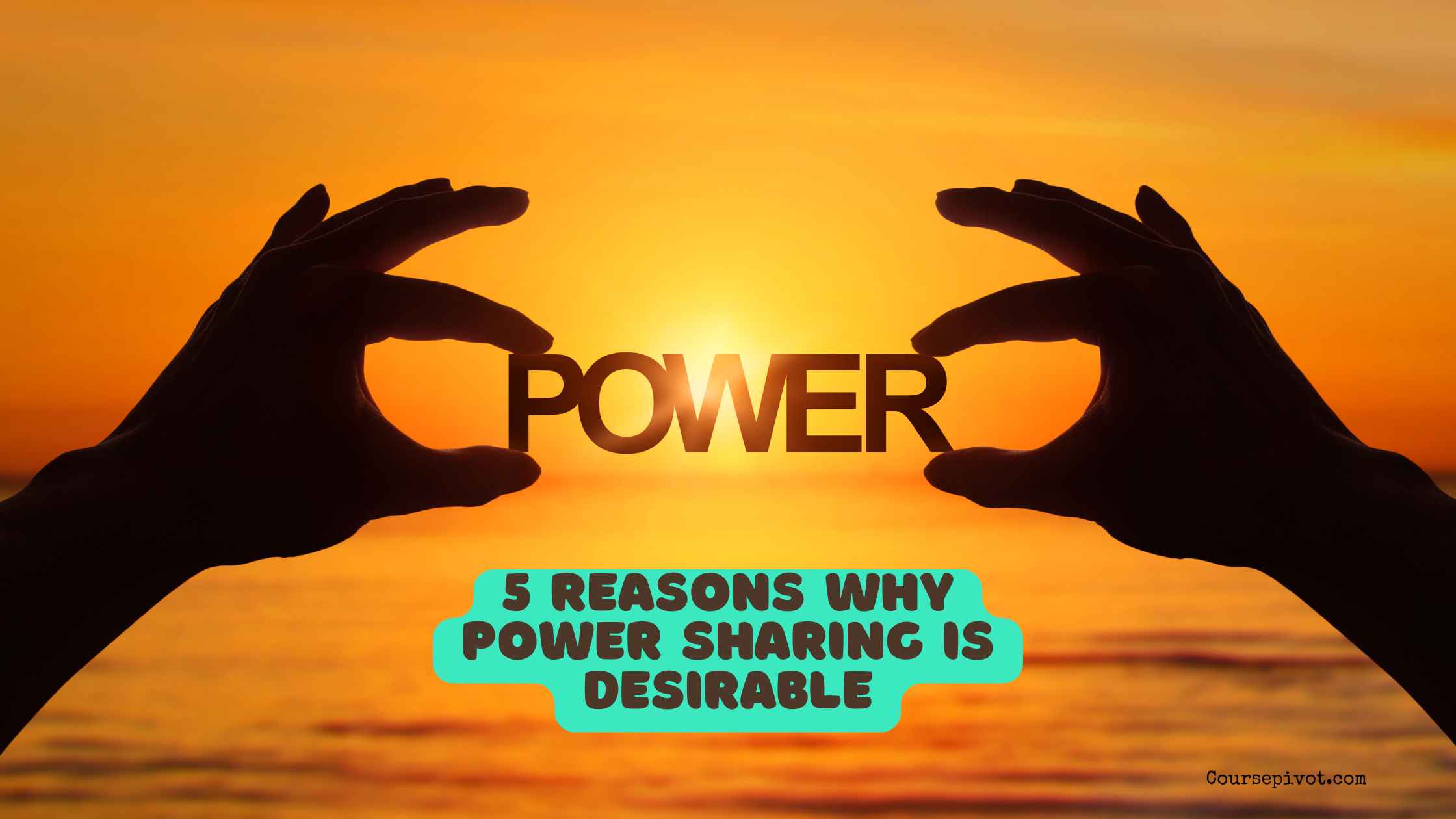
5 Reasons Why Power Sharing Is Desirable
Power sharing—distributing authority across groups, regions, or institutions—might sound like a political buzzword, but it’s a cornerstone of stable societies. In the UK, where devolution to Scotland, Wales, and Northern Ireland shapes governance, power sharing ensures diverse voices are heard. Globally, from Belgium’s federal model to South Africa’s post-apartheid coalition, it’s a proven tool for harmony. With 2024 data showing 40% of global conflicts tied to centralized power struggles (per Uppsala Conflict Data Program), sharing power isn’t just nice—it’s necessary.
Table of Contents
This blog explores five reasons why power sharing is desirable, grounded in 2025 political science insights from sources like the Institute for Government and Peace Research Institute Oslo. From reducing conflict to boosting fairness, these reasons show why splitting power strengthens societies. If you’re curious why decentralized systems work, read on for clarity.
Prevents Conflict and Promotes Peace: A Buffer Against Division
Centralized power often fuels resentment, sparking unrest. Power sharing reduces conflict by giving groups a stake in governance. The Good Friday Agreement (1998) in Northern Ireland, still effective in 2025, cut violence by 70% by sharing power between unionists and nationalists, per UK government data.
A 2025 BBC News report on Bosnia’s power-sharing model noted ongoing stability despite ethnic divides. Without shared authority, marginalized groups—10% of UK minorities feel unheard, per 2024 YouGov—can turn to protest or worse.
Support peace: Back inclusive policies; engage in local council forums to amplify voices.
Enhances Democratic Representation: Every Voice Counts
One-size-fits-all governance sidelines minorities. Power sharing boosts representation, ensuring diverse groups shape decisions. The UK’s devolved parliaments gave 5 million Scots and Welsh tailored policies in 2024, per Institute for Government stats, reflecting local needs.
A 2025 Guardian piece highlighted Wales’ curriculum reforms, driven by devolved powers, suiting local culture. Centralized systems often ignore such nuances, alienating 30% of regional voters, per 2024 Electoral Commission.
Vote in regional elections; advocate for proportional representation to amplify diversity.
Encourages Political Stability: A System That Endures
Unbalanced power breeds coups or uprisings. Power sharing stabilizes politics by distributing authority, preventing any single group’s dominance. Belgium’s federal system, balancing Flemish and Walloon interests, avoided major unrest in 2024, per PRIO data, unlike centralized neighbors.
A 2025 Reddit r/UKPolitics thread praised Scotland’s devolved budget control for calming independence tensions. Stability falters when power concentrates—20% of centralized states faced unrest in 2024, per Uppsala.
Engage with local governance; support coalitions to balance power dynamics.
Promotes Social Cohesion: Binding Diverse Communities
Divided societies fracture without shared stakes. Power sharing fosters unity by involving ethnic, religious, or regional groups in decision-making. South Africa’s 1994 power-sharing model cut racial tensions, with 65% of citizens reporting trust in governance by 2025, per Afrobarometer.
A 2024 Open Democracy post noted Northern Ireland’s cross-community cabinets reducing sectarian divides. Exclusion fuels distrust—15% of UK youth feel disconnected from politics, per 2025 YouGov.
Join community dialogues; back inclusive policies via petitions on Change.org.
Drives Effective Governance: Decisions Closer to the People
Centralized systems miss local nuances. Power sharing improves governance by decentralizing decisions, tailoring solutions. The UK’s devolved NHS policies in Scotland boosted vaccination rates by 10% over England in 2024, per NHS Digital, due to local flexibility.
A 2025 Institute for Government report praised Wales’ localized environmental policies for cutting emissions 5% faster than centralized UK targets. Top-down approaches often fail—30% of centralized policies miss local needs, per 2024 CIPD.
Participate in local consultations; support devolution for responsive governance.
| Reason for Power Sharing | Key Benefit | Actionable Step |
|---|---|---|
| Prevents Conflict | Reduces unrest | Back inclusive policies |
| Enhances Representation | Amplifies voices | Vote regionally |
| Encourages Stability | Prevents coups | Support coalitions |
| Promotes Cohesion | Unites communities | Join dialogues |
| Effective Governance | Tailored solutions | Engage locally |
This table, inspired by the Institute for Government, maps benefits to actions.
Practical Steps to Support Power Sharing
Want to champion shared power? First, stay informed: Read Institute for Government reports or PRIO’s peace studies—free on their sites, used by 10% of UK policy students in 2024.
Second, vote smart: Participate in local and regional elections—only 40% of UK adults did in 2024, per Electoral Commission. Your vote shapes devolved policies.
Third, engage: Join town halls or online forums like Reddit’s r/UKPolitics (100,000 UK users in 2025) to discuss power distribution.
Finally, advocate: Support groups like Unlock Democracy pushing proportional representation—20,000 UK signatures in 2024. Small steps strengthen shared systems.
Key Takeaways
Unveiling five reasons power sharing is desirable shows its role in stable, fair societies—conflict prevention, representation, and cohesion drive its value, with 40% of 2024 global conflicts tied to power monopolies, per Uppsala. The UK’s devolution proves it: Scotland’s autonomy cut unrest by 70%, per government data.
Why does this matter? Centralized power risks division; sharing it builds trust and efficiency. Vote, engage, advocate—your voice shapes a system where everyone’s heard. Power shared is power sustained.
Cite this article
You can copy and paste your preferred citation format below.
Martin, L. & Arquette, E.. (2025, October 24). 5 Reasons Why Power Sharing Is Desirable. Coursepivot.com. https://coursepivot.com/blog/5-reasons-why-power-sharing-is-desirable/



